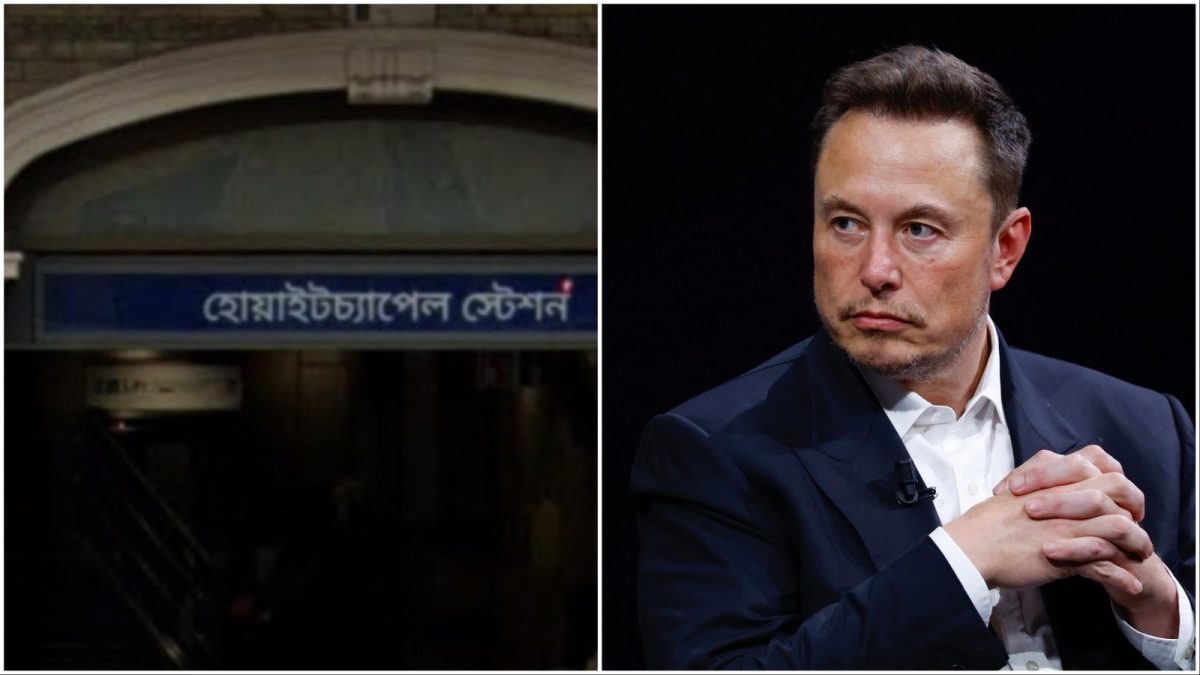 |
|
The recent controversy surrounding the bilingual signage at London's Whitechapel Station, featuring both English and Bengali, has ignited a debate about language and cultural representation in public spaces. This seemingly simple issue of signage has become a focal point for discussions on immigration, cultural integration, and national identity, drawing in unexpected figures like Elon Musk and highlighting the complexities of navigating multicultural societies. The initial installation of the Bengali signage in March 2022, funded by the Tower Hamlets council, was intended as a gesture of recognition towards the significant Bangladeshi community in East London. This community represents the largest Bangladeshi population in the UK, making Whitechapel a vibrant hub of Bengali culture and heritage. The signage was seen by many as a positive step towards inclusivity and cultural recognition, a celebration of the contributions of the Bangladeshi community to the fabric of London life. However, this positive interpretation was not universally shared. The ensuing debate, fueled by the comments of MP Rupert Lowe and the subsequent endorsement from Elon Musk, underscores the underlying tensions and differing perspectives on how best to balance cultural representation and national unity within a multicultural context.
The intervention of MP Rupert Lowe, who criticized the inclusion of Bengali alongside English on the station signage, frames the debate within a larger political discourse. His assertion that station names ‘should be in English and English only’ reflects a view prioritizing a singular, national identity represented by the English language. This stance implicitly suggests a potential threat to national unity, perceived or real, from multilingualism and the visible presence of other languages in public spaces. This perspective resonates with certain segments of the population who may view multilingual signage as a dilution of national identity or a challenge to the dominance of English. The response from West Bengal Chief Minister Mamata Banerjee, celebrating the signage as a testament to the global importance of the Bengali language and the strength of the diaspora, offers a contrasting perspective. This highlights the symbolic value of language, not just as a means of communication, but as a representation of cultural identity and heritage. Her perspective underscores the importance of cultural representation and the role of such gestures in fostering a sense of pride and belonging within a diaspora community.
Elon Musk's seemingly simple 'Yes' in response to MP Lowe's tweet adds a significant layer of complexity to the debate. His brief endorsement, delivered on his widely followed X platform, instantly amplified the controversy, giving it a global reach and exposing it to a much broader audience. Musk's intervention, while brief, carries significant weight due to his considerable influence and the vast reach of his social media presence. His endorsement, lacking nuanced explanation, risks oversimplifying a multifaceted issue and potentially fueling existing prejudices against multilingualism. The inclusion of his response within the broader context of the debate highlights the potential influence of prominent individuals in shaping public discourse and potentially influencing public perception on matters of language, culture, and national identity. The lack of detailed justification in his response encourages a simpler, more divisive interpretation of the situation, potentially obscuring the nuances of cultural representation and integration.
The Whitechapel Station signage controversy underscores the inherent challenges in navigating multicultural societies and the delicate balance between promoting cultural diversity and maintaining a sense of national unity. The debate highlights the complex interplay of various perspectives and the potential for even seemingly minor issues to become symbols of larger cultural and political conflicts. The divergent reactions to the dual-language signage, ranging from celebration to condemnation, reflect the differing values and priorities held by various segments of society. While the proponents of multilingual signage emphasize inclusivity and the recognition of cultural contributions, the opponents highlight the perceived need to maintain the primacy of English in public spaces. This conflict underscores the need for open and nuanced discussions regarding language, culture, and the representation of diverse communities within a national context. Ultimately, the resolution of such conflicts requires finding a way to balance these competing values, fostering both a sense of national identity and a welcoming environment for diverse communities.
Moving forward, it is crucial to engage in more thoughtful and inclusive discussions about multilingualism in public spaces. This requires moving beyond simplistic 'English only' approaches and considering the positive impact of multilingual signage on fostering a sense of belonging for diverse communities while also maintaining effective communication. Rather than framing multilingualism as a threat to national identity, it is important to recognize its potential to enrich society by celebrating cultural diversity and promoting intercultural understanding. Finding solutions that balance these competing values requires a commitment to open dialogue, a willingness to understand diverse perspectives, and a shared goal of building a truly inclusive society that embraces its multicultural heritage.
Source: Elon Musk Backs UK MP's 'English Only' Call Over Bengali Signage At London Station
